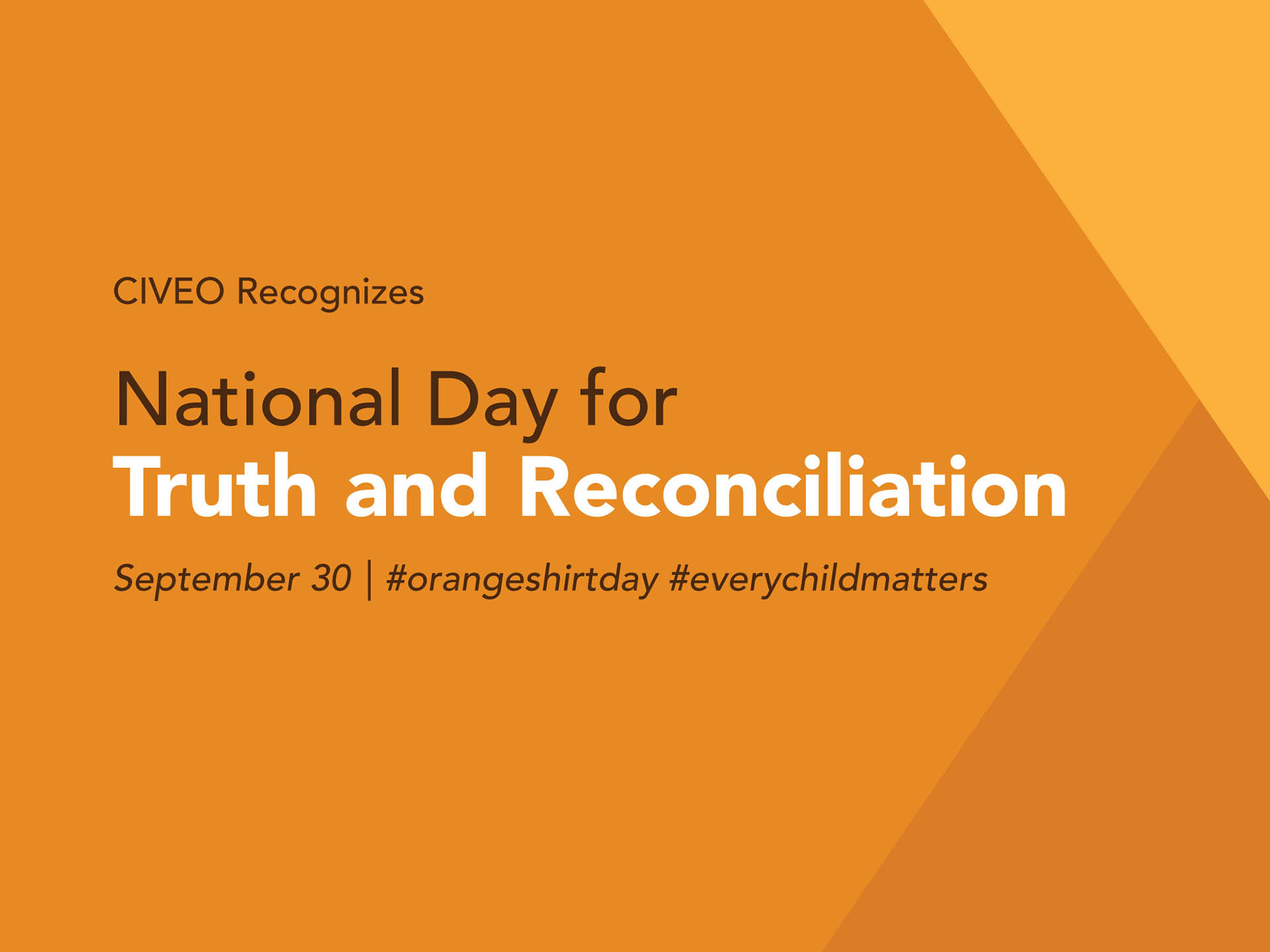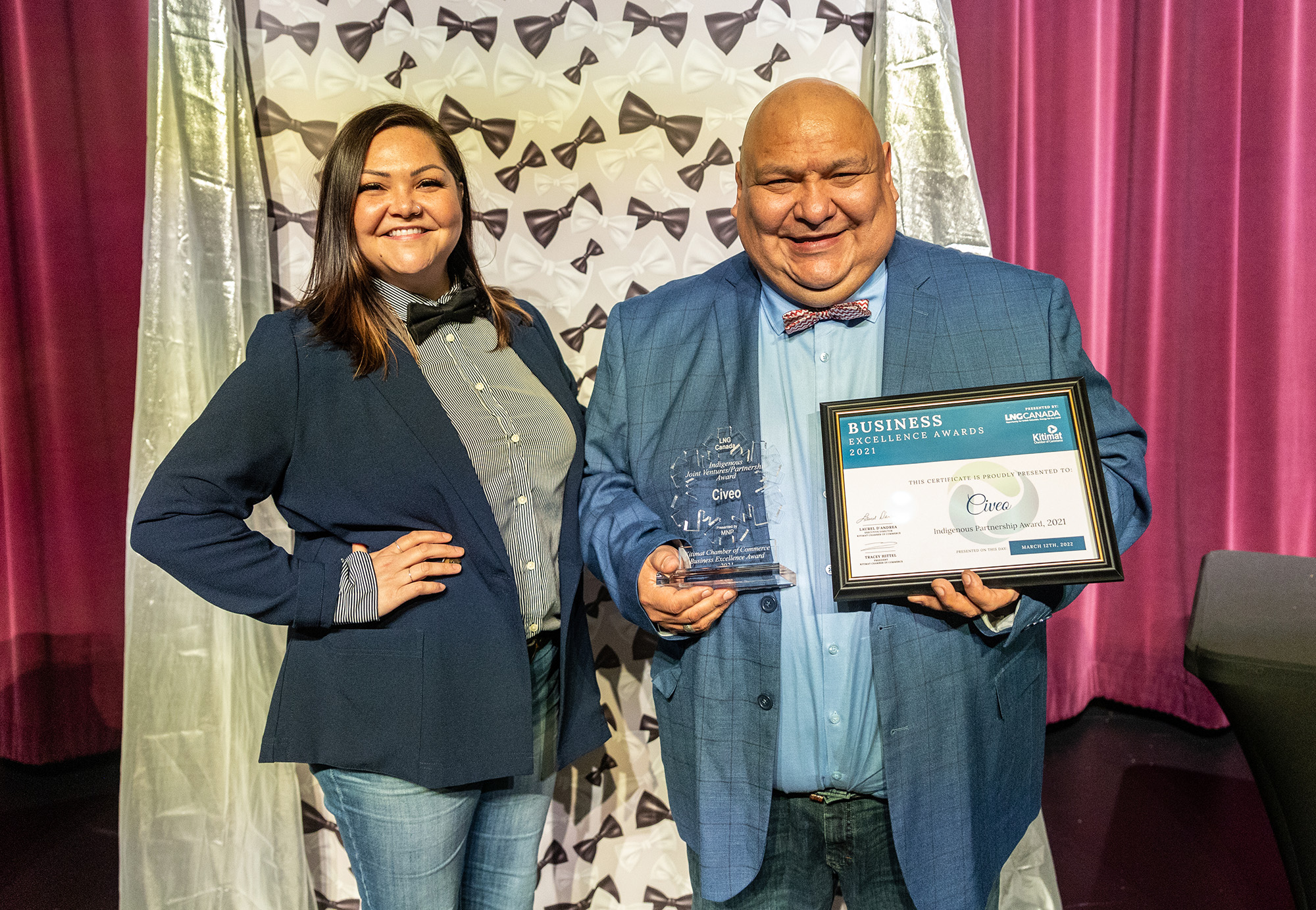Orange Shirt Day. National Day for Truth and Reconciliation
Published: September 29, 2021

A Message from Al Schoening, President, Civeo Canada
Since 2013, September 30 has been observed as Orange Shirt Day – a movement to promote awareness in Canada for the injustices of the former Indian Residential School System and the troubling impact it has had on Indigenous communities for over a century.
Following the discovery of thousands of unmarked gravesites across the country in recent weeks, the time to listen and provide our endless support is needed now more than ever. Our thoughts go to the students and families who were impacted by this very painful time in our collective history.
Since our inception, Civeo has had the good fortune to work in close, respectful collaboration with First Nations and Indigenous community partners across Western Canada. As a guiding principle, Civeo has incorporated a policy statement recognizing the United Nations Declaration on the Rights of Indigenous Peoples. In doing so, Civeo formalized its commitment to advancing Indigenous human rights through truth and reconciliation.
We believe it is important to acknowledge the significance of this day and take a moment to reflect on the troubling circumstances that gave rise to it. In June of this year, the federal government passed legislation to mark September 30, 2021 as a National Day for Truth and Reconciliation. In this spirit, we encourage everyone to pause, reflect, and show your support by wearing orange. With this symbolic gesture, we demonstrate our solidarity with the Indigenous community and our ongoing commitment to reconciliation.
Please join us. Wear orange.
About Orange Shirt Day
With excerpts from Orange Shirt Society (orangeshirtday.org)
Orange Shirt Day is a legacy of the St. Joseph Mission (SJM) Residential School (1891-1981) Commemoration Project and Reunion events that took place in Williams Lake, BC, in May 2013.
The events were designed to commemorate the residential school experience, to witness and honour the healing journey of the survivors and their families, and to commit to the ongoing process of reconciliation.
As spokesperson for the Reunion group leading up to the events, former student Phyllis (Jack) Webstad told a story of her first day at residential school as a six-year-old girl when her new orange shirt, bought by her grandmother, was taken from her by school administrators. This story, and the orange shirt, has since become a symbolic representation of the movement to keep the reconciliation process alive.
Since 2013, Orange Shirt Day has opened the door to meaningful discussions about the effects of the former residential school system and the legacy it has left behind. It is an opportunity for First Nations, local governments, schools, and communities to come together in the spirit of reconciliation and hope for generations of children to come.
Learning and Reflection: Actions & Resources
- Watch the Phyllis (Jack) Webstad Story – In Her Own Words
Source: www.orangeshirtday.org/phyllis-story.html - Read the Truth and Reconciliation Commission of Canada: Calls to Action
Source: https://ehprnh2mwo3.exactdn.com/wp-content/uploads/2021/01/Calls_to_Action_English2.pdf - Visit the Orange Shirt Society
Source: www.orangeshirt.org - Watch online events hosted by the National Centre for Truth and Reconciliation
Source: www.nctr.ca/
Social Support
For those who continue to deal with the traumas caused by the former residential school system, please reach out to the Residential Schools Crisis Line, available 24-hours-a-day at 1-866-925-4419.

